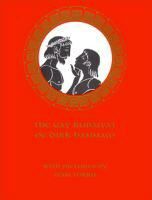The man who was to keep the torch of scientific humanism alight within early Islamic civilization was born a thousand years after the death of Lucretius, and into a vastly different cultural setting. Nevertheless, in all that Omar Khayyam wrote one can clearly recognize the influence of the great Roman poet, and of the naturalistic Epicureanism that he celebrated. This is doubly remarkable when we recall that, during the centuries between Lucretius and Khayyam, a Dark Age had engulfed and stifled Western Europe. The spread of a mystical form of religion throughout the remnants of the Roman empire, combined with the influence of the Germanic tribes, had gradually produced what amounted to a reversion to barbarism. Gullibility and ignorance pervaded life at all levels, while economic activity declined to primitive levels of barter. An attitude of contempt for earthly existence and bodily pleasures had become the norm, along with belief in all manner of superstition and magic.
